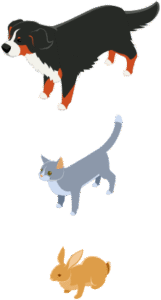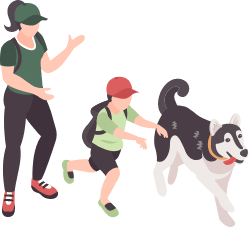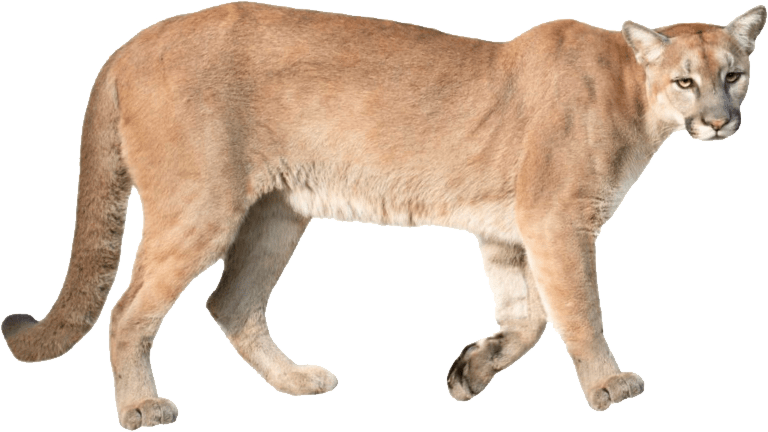British Columbia is home to an estimated 3,500 cougars. Sightings are increasing due to habitat loss, urban expansion, and more surveillance capturing their movements.
Young cougars learning to survive alone and older or injured ones struggling to find food are often seen in urban areas. These elusive animals are mostly nocturnal but can be active anytime. They travel large distances, and in winter, they often move to lower elevations in search of food, bringing them closer to people.

Help reduce activity close to homes
To reduce cougar activity near your home, avoid attracting smaller wildlife they prey on. Cougars in urban areas face higher risks from vehicles and visibility. Their diet includes deer, coyotes, rabbits, raccoons, squirrels, and rodents—animals often drawn to human settlements.
- Avoid feeding wildlife; plant bird-friendly vegetation instead of using feeders.
- Keep garbage and organics odor-free and stored securely until collection day.
- Pick up fallen fruit daily and store it safely.
- Use and maintain electric fencing for chickens and livestock.
- Never use rodenticides—opt for humane rodent control to protect wildlife and pets.

Keep pets & Cougars safe
Outdoor cats attract coyotes and cougars and are at risk year-round. Keep cats indoors or provide supervised outdoor time with a harness or secure catio.
Off-leash dogs are involved in most negative wildlife encounters. Keep dogs on a short leash to reduce risks. Cougars may see pets as prey, and off-leash dogs can provoke defensive behavior. If a cougar climbs a tree for safety, leave the area and avoid cornering it.
- Feed pets inside and store excess food indoors
- Supervise dogs closely if off-leash on your property
- Keep dogs leashed and carry bear spray and a flashlight if you are outside with your dog between dusk and dawn.

Exploring in Cougar country
Cougar attacks are extremely rare. These big cats often move through urban areas and trails unnoticed. To stay safe:
- Travel in groups and stay aware of your surroundings.
- Avoid headphones and make noise, especially on low-visibility trails or near water.
- Keep children close, as their small size and quick movements can confuse cougars.
- Hike during daylight and keep dogs leashed.
- Watch for tracks, scat, or cached food (hidden prey). If you find a carcass, leave the area immediately.
- If you come across cougar kittens, back away—mothers may defend them
- Carry bear spray, keep it accessible, and practice using it.

If You Encounter a Cougar
- Stay calm, keep the cougar in sight, and maintain eye contact.
- Pick up small children and pets.
- Slowly back away and stay focused on the situation.
If the Cougar Approaches
- Make yourself look big and assertive.
- Use a firm tone and identify yourself as human.
- If necessary, throw objects without crouching for long.
- Move slowly and ensure the cougar has an escape route.
- If it gets too close, deploy bear spray responsibly.
If Attacked
- Fight back, targeting the cougar’s eyes and face.
- Teach and practice safety measures with your family.
Cougars are vital to the ecosystem. Respect their space and follow these guidelines to keep people, pets, and wildlife safe.
